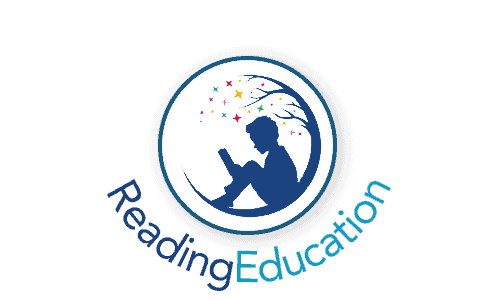Learning to spell can be a source of frustration for children who are in the early stages of learning to read and write. While it is true that children develop at different rates and that some early learners may take some time to acclimatise to reading, writing, and spelling, if their difficulties persist beyond their initial few years of school, it’s possible that a language-based learning difference could be the reason for their slow progress. Research suggests that one in ten people have some form of dyslexia, which can impact spelling ability.
Dyslexia children may have the ability to spell a specific word one day but not the next, and can often find commonly used service words, such as articles, conjunction, and prepositions, especially challenging to grasp.
Unfortunately, if a child’s spelling ability is below that of their peers, it can adversely impact his or her confidence, which, in turn, can affect their performance at school, both in terms of the quantity and quality of their work. If a child has little confidence in their ability to spell, they may avoid using certain words that are part of their oral vocabulary due to fear of making a mistake when spelling said words. Furthermore, children who struggle at school may also become unwilling to participate in group games and activities, particularly exercises that involve writing on the whiteboard. They are also less likely to actively take notes during class.
As literacy skills are needed across the entire spectrum of the curriculum, children who score lower marks on their exams or homework may form a negative attitude toward learning and attending school, which may increase the risk of lower self-esteem. Unfortunately, the tragedy is that learning to spell and the ability to spell is a relatively superficial facet of writing, and if the right coping techniques and teaching strategies, struggles with spelling can undoubtedly be conquered.
Sadly, in some cases, if struggles with spelling, language, and literacy are not appropriately addressees, these issues can continue into adulthood, affecting higher education and career opportunities.
The Cognitive Processes Involved in Spelling
Formation of Letters and Words
Prior to mastering the ‘art’ of spelling, a child needs to learn each letter of the alphabet. The formation of letters and words requires considerable cognitive resources – in addition to fine-motor coordination – for the process to become ‘automated’. Children with visual processing disorders, such as dyspraxia and dysgraphia, may struggle with letter formation.
Word Encoding
In reality, letters are merely arbitrary symbols used to represent the sounds of words and language. For a child to gain the ability to spell, he or she must be able to hear, recognise, and identify the sounds in a word, which is an essential pre-literacy skills for youngsters to acquire. Following that, a child must be aware of how letters translate to sounds (and vice versa) in order to correctly translate letters into words, i.e. written language.
Memory (Short-term)
In instances of words not being spelt the way they are pronounced, short-term memory is needed to remember the written form of the word. This is also the same for homophones – words that sound identical but are written differently, i.e. their and there. The more times a child comes across a word, the easier it becomes to memorise its spelling.
Writing Automation
The more a child writes a word by hand, the more a word’s spelling becomes an automatic process – especially in children who have dyslexia. This is also the same for touch-typing as spelling becomes encoded as a chain of muscle movements. In fact, it is often recognised that children with learning difficulties actually find spelling an easier task when touch-typing than writing by hand. Furthermore, having the ability to type can also enhance a child’s written spelling proficiency. In most instances, when a child is asked to spell a word, they will visualise the keyboard in their ‘mind’s eye’, and merely watch their fingers spell out the word semi-automatically.
What Causes Trouble with Spelling?
Dyslexia
Dyslexia is primarily language-based learning difference typically associated with reading and spelling difficulties, but it may also adversely affect processing skills and memory. While there are several different forms of dyslexia, the most common form of this learning difference makes it very difficult for people to separate language into its individual sounds. Although spell-checkers and proofreading can help to address spelling issues, reading difficulties are recognised as being fat more serious due to the fact they can cause children to lag behind their peers quite considerably.
A dyslexic child will often spell inconsistently, with letter reversals, letter substitutions (of same-shaped letters), difficult learning common ‘abstract’ words that are hard to visualise, and troubles with vowel sounds being common errors.
ADHD
Attention deficit hyperactivity disorder often referred to as ‘ADHD’, is often used as an umbrella term to describe children with attention deficit and hyperactivity, or merely the former without the latter. Children with ADHD and ADD process verbal and written information in a different way, meaning they often struggle to focus their attention on a specific task for any length of time, which means that they often don’t fully grasp letters, words, and ultimately, spelling. Problems with short-term memory make it increasingly difficult to spell (and remember how to spell) more challenging words, resulting in frequent spelling mistakes throughout their work.
Dyspraxia and Dysgraphia
Both dysgraphia and dyspraxia affect writing ability. There are various types of the former, but children with dysgraphia may struggle to write in a straight line or keep between the margins. The latter, however, can be physically painful as the fine motor skills required to grip a pen or pencil and physically write don’t work efficiently. As you might expect, children with either of these learning difficulties often find spelling and writing a frustrating task, which results in untidy handwriting and frequent spelling mistakes.
Hearing Loss
Encoding words requires the ability to hear the sounds in words and language; therefore, children who suffer from hearing impairment may have less develop phonemic awareness, especially if their hearing impairment was not identified early. Children with hearing loss will often miss out a letter or confuse one letter for another, meaning they often have to rely more on their memory to spell words rather than sound them out.
Improving Spelling Throughout Multi-Sensory Learning
As is the case with any form of learning, involving more senses than just the ears and eyes helps to build a profoundly sensory experience that fortifies information in a child’s memory. Therefore, when dealing with children who struggle with spelling, taking a multi-sensory approach to learning is certainly a good idea. Here are a few examples of multi-sensory activities to help develop spelling and literacy skills.
#1 – Air Words
Children are often asked to write letters and words in their school book or on the board; however, it can be helpful for children to also trace letters and words in the air using their finger. Other substances, such as glitter or sand, can also be used. An activity like this is fantastic for children with dyspraxia who struggle gripping a pencil or pen. When writing ‘air words’, try to say the letters and words about to involve several sensory channels.
#2 – Bead Words
Spell out words using beads, peas, small pebbles/stones, or beans. This is a great activity for children who are still getting to grips with letter formation and who struggle with spelling. Using objects to spell words is a fun activity, even though it is, of course, challenging. To add an extra element to this exercise, encourage your child to use different colour beads for each letter and ask them to say each letter and the word aloud too.
#3 – Rubber Stamps and Ink
Another fantastic activity for children who struggle with writing and spelling is to use rubber stamps and ink to spell words. Using stamps and ink allows children to practise spelling without the need to write. Try and use many different colours of ink and encourage your child not only to spell out a word, but also draw a picture of the word too. As always, ask your child to say each letter and the word aloud.
#4 – Touch-typing
By far and away one of the best multi-sensory activities for spelling is by learning to spell using a keyboard. Why? Because this approach uses a myriad of senses; children see words on the screen, listen to it read aloud, and then use their fingers to type the word out using the keyboard. Involving a trio of senses helps to reinforce what is being taught, as well as to enabling repetition without the risk of physical strain or injury that may occur from writing by hand. Repetition will allow the letter combination and the word as a whole to become ‘encoded’ as a chain of muscle movements.
#5 – Human Body Chains
Although not the most practical of multi-sensory spelling exercises, getting outside and spelling words out using the human body will certainly freshen learning up and provide new stimuli for your child. Getting out of the classroom (mentality) can really help to motivate and excite, which is one of the keys to successful learning in children. Before heading outside, make a written plan of the words you’re going to create and map out who will make specific letters. Although this exercise can be a little bit of struggle, to begin with, once everyone gets the hang of it, there’s no doubt it’ll be lots of fun. It’s best to begin with short words to begin, then graduate to longer words once everyone is acclimatised to how it works!
Spelling and Reading: Is There a Link?
There is an inextricable link between all facets of literacy; therefore, a child who struggles with spelling may also have difficulties with reading – particularly in the case of dyslexia. Struggling to read may result in lower levels of comprehension because more words are misread. Furthermore, reading will typically take longer and be more frustrating as it requires higher levels of cognitive energy and concentration. If your child has difficulty sounding out words and becomes easily embarrassed when asked to this in front of others, ask their teacher not to put them in this position as it will likely lower their confidence and self-esteem – something which are barriers to learning and developing. Instead, go through things at their own pace, being sure to have patience and to praise them frequently.
Luckily, exercises, activities, and games that are designed to improve spelling skills can also positively affect reading ability. Continual exposure to words helps to make identifying and recognising them become an automatic process, helping your child read by sight, rather than sounding each individual word out.
Everything You Need To Know If Your Child is Struggling with Spelling: A Summary
The first and most important point we need to establish here is that many children struggle to spell. Children develop at different rates; therefore, it’s not uncommon to see some children fall behind their peers. So, if you feel that your child is lagging behind their classmates somewhat or are finding learning to spell exceptionally hard, it’s crucial not to worry. If you are concerned, speak to your child’s teacher to gauge their opinion of how well your child is developing; they’ll be aware of everything and will certainly know whether or not your child is struggling in class. Working with your child’s teacher, you can formulate a plan to help boost your child’s spelling ability, both in the classroom and at home. It is the combination of both of the learning environments that will provide the most benefit and ultimately, success.

